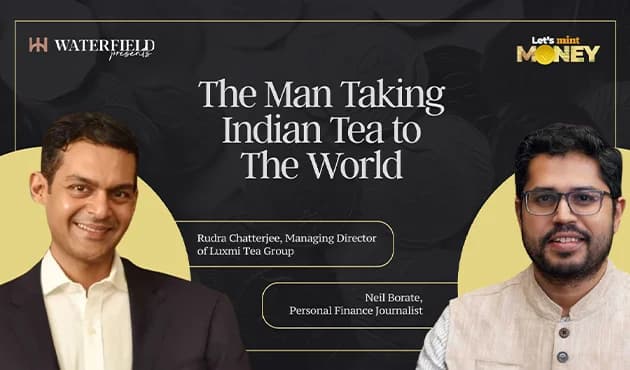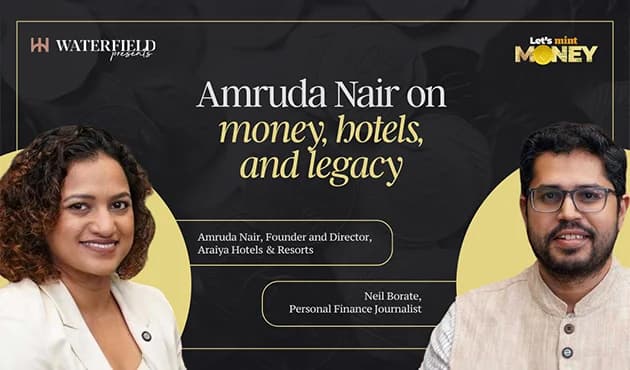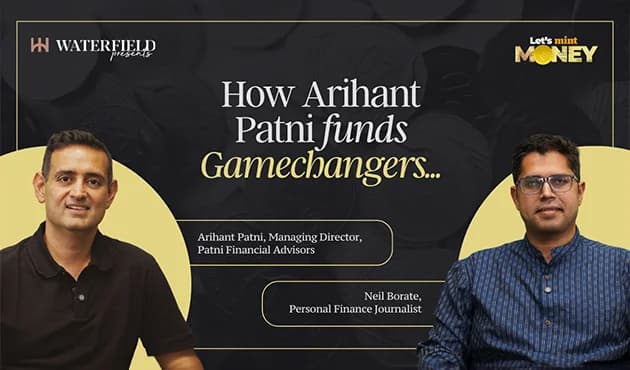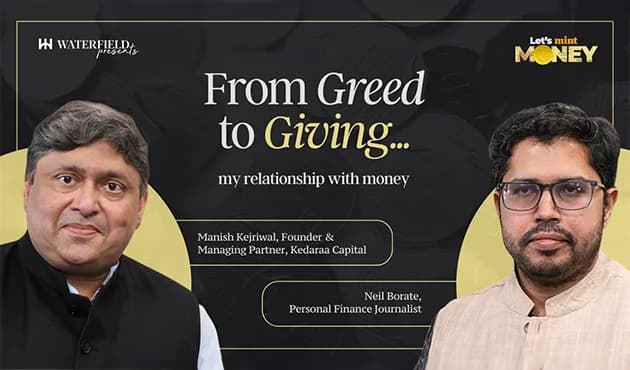5 Trends that Shaped Wealth in 2024 | #2 Evolution of the Influencer Era
article • Investment Management

Waterfield Advisors
2024-12-19 | 5 Minuntes
Social media has redefined everything, from how we consume to how we communicate, and one of its most significant implications has been the democratisation of the power of ‘creation’. Very quickly, this ability to create and distribute led to the emergence of ‘influencers’ – a community that started giving a tough time to even the most popular celebrities in terms of following, influence, and even wealth creation.
In 2024, the ‘influencer era’ took fascinating new shapes and forms. This year, in India, we observed a curious trend, of established influencers going entrepreneurial and successful entrepreneurs cementing their career as influencers. While the two exchanged roles, the original influencers - music artists - made such a strong comeback that it opened up a whole new market.
Here’s a closer look at these defining shifts and how they shaped wealth in 2024:
The Entrepreneur-turned-Influencer
In 2024, India's startup founders moved beyond boardrooms to become personal brands in their own right. Founders are actively building personal brands on social media, leveraging platforms like LinkedIn and X to share company updates, personal philosophies, and business insights. Founder-driven marketing is now a recognized driver of brand loyalty, customer acquisition, and investor confidence, and its influence on stock prices and company valuations is becoming increasingly evident.
This branding exercise affects both the founder’s personal wealth creation and the company’s revenues and valuations. Founders are increasingly monetizing their personal intellectual property (IP) through books, video series, and podcasts, turning their brand assets into revenue-generating opportunities. Their handles have also become an important marketing channel for the brand, driving brand loyalty, and directly impacting revenues.
Some popular examples include Deepinder Goyal (Founder, Zomato) and Nikhil Kamath (Co-founder, Zerodha & True Beacon). Goyal’s candid social media posts about work culture and product updates influenced Zomato’s stock price, with each announcement driving market reactions. Kamath’s thought leadership on LinkedIn has shaped investor sentiment and amplified Zerodha’s brand value. With the WTF Roundtable, he also played a key role in popularising podcasts in the country.
However, being a public figure is a delicate balancing act. Founders have experienced both applause and sharp criticism. It will be interesting to see how this trend develops from 2025 onwards.
The Influencer-turned-entrepreneur
The creator economy has witnessed meteoric growth worldwide, and India has cemented its position as a major player. India now hosts over 100 million content creators across platforms like YouTube, Instagram, and LinkedIn. Regional platforms like ShareChat, Moj, and Josh have enabled non-English-speaking creators to monetize their content, unlocking new revenue streams. The Indian creator economy is valued at INR 1,300 crore, growing at a CAGR of 25%, with YouTube accounting for over 10% of the total market.
In 2024, India’s creator ecosystem evolved from being a side hustle economy to a fully-fledged enterprise. With creators like Prajakta Koli (MostlySane) and Bhuvan Bam transforming from content creators to entrepreneurs, wealth creation in this sector has taken a structured turn, in particular, because of multi-stream income models — from brand sponsorships to D2C product launches. Bhuvan Bam’s venture into content production through BB Ki Vines Productions has evolved into a sustainable business, generating revenue from OTT platforms like Disney+ Hotstar and Amazon Prime.
The Unprecedented Influence of Music Concerts
Live entertainment in India experienced an upsurge in 2024, with concerts by global and Indian artists getting sold out within seconds. Concerts by international stars like Coldplay, Dua Lipa, and Post Malone drove unprecedented demand for tickets in India. Indian artists like Diljit Dosanjh and Arijit Singh matched global artists’ popularity, drawing record-breaking crowds.
This interest is again heavily social media-driven, with influencers and content creators generating massive FOMO on all channels. However, it has restored life to the events industry which was one of the hardest affected industries by covid. The aspiration to attend live concerts lives on across Gen Z, Y, and X, and there’s something for everyone. The acquisition of PayTM Insider by Zomato is another clear indication that this industry is touted to generate massive wealth-creation opportunities for all involved, from the artists to the sponsors.
On a sidenote, tickets to these coveted concerts also evolved into a speculative asset class. Ticket resale, or “ticket flipping,” emerged as a short-term profit-making strategy. This practice mirrors other forms of alternative investing, such as sneaker flipping. Investors purchase tickets as soon as bookings open, list them on resale platforms or Telegram groups, and sell them closer to the concert date, often at a 2-3x markup. Ticket resale prices soared, with Coldplay’s Mumbai show tickets originally priced at INR 10,000 being resold for INR 40,000 or more.
The Way Forward: India’s Unique Context for Generational Shifts in Wealth
India’s wealth creation story is driven by a young, tech-savvy population that prioritizes experiences, content creation, and self-driven influence. The three trends discussed are not isolated but interconnected, with creators, founders, and micro-investors often overlapping in their roles as wealth creators. This evolving landscape presents both opportunities and challenges, requiring wealth managers to position themselves as indispensable advisors to this new generation of wealth creators. As we look to 2025 and beyond, one thing is clear — wealth creation is no longer confined to legacy investments. It now extends into realms driven by influence, creativity, and alternative assets.














